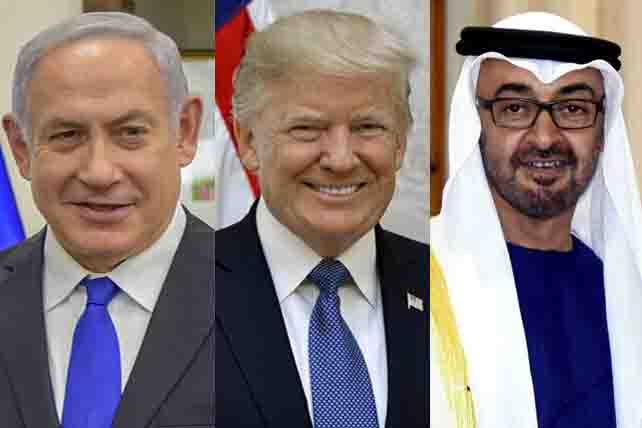New Delhi will have to study the accord, go into the background details and deeply ruminate over the likely fallout of the agreement in the Indian and regional context especially in the emerging post-Covid19 world order. Even before the ink is dry the agreement has run into controversy in its reference to the Palestinian issue. The UAE has interpreted the relevant clause to mean an “immediate end” to Israeli plans to annex areas in West Bank under its control. The Israeli officials have stuck to the word “suspend” the annexation plan and continue negotiations with Palestine. This allows the Israeli Prime Minister Benjamin Netanyahu to placate the protagonists of a hard policy towards the West Bank settlements so as to convert the status quo into a permanent addition to the existing geography.
When the Trump administration decided to move its embassy in Tel Aviv to Jerusalem India continued with its “neutral posturing” position with a view to balance its strategic engagement with the US and Israel and the economic and energy security pacts with the Arab World. The Palestinian cause has been relegated to the background in the wake of a financial meltdown, falling demand for oil and rising joblessness due to Coronavirus that originated from China.
China meanwhile formalised its “Four Points” position on Israel-Palestine conflict as enumerated by Xi Jinping in his speech in July 2017 with a close resemblance to India’s position of calibrated balancing with a realist approach to the national interest. Interestingly Islamabad has refused to toe the Arab big brother’s line in recognising Israel. Invoking Quaid-e-Azam Muhammad Ali Jinnah, Pakistan Prime Minister has in a veiled reference to UAE has said that ‘whatever any country does we cannot ever accept Israel as long as Palestinians are not given their rights’. What is important to note is his reasoning that (if Pakistan accepted Israel and ignored the oppression of the Palestinians) “we will have to give up Kashmir as well then”.
As the recent agreement cements the changed relationship between Israel and the UAE, India has a window of opportunity to not only participate in the common business platforms but also widen the scope and scale of security arrangements which can have far-reaching and positive significance concerning any action plan on POK. The post-Covid19 world order is likely to be very different from what it appears to be now. New Delhi should prepare itself for an enhanced and more active role in the new and emerging geopolitical architecture.
Breaking all taboo Narendra Modi in 2017 became the first-ever Indian Prime Minister to visit Israel. India-Israel defence trade is likely to touch the twenty billion mark with India becoming one of the core countries to be dealing with the high powered SIBAT in Israel. The best part of Modi’s balancing act was revealed when the Arab world took notice of the immense opportunities in India and signalled its readiness to work on trade and investments in India. More importantly, the OIC’s refusal to allow a stand-alone meeting on Kashmir issue signals a new era of understanding of New Delhi’s position.
China is deeply entrenched in Gwadar and the Indian Ocean region. Tehran is having serious rethink over India’s role in the Chabahar port project. Turkey, which has threatened to recall its ambassador from Abu Dhabi, is busy forging a new non-Arab Islamic alliance to include Pakistan and Malaysia to achieve its dream of reviving the Khilafat-II especially at a time when a section of the Arab world seems to be distancing itself from the Palestinian cause while cosying up to Israel. In the event of this non-Arab Islamic coalition gaining ground, it would be interesting to see which way Beijing tilts and what this portends for New Delhi and the region.
This emerging non-Arab coalition would like to see the back of the US in the Arab world. But the Arab solidarity is not yet a thing of the past and it is too early to conclude that the US has vacated from the Middle East. The economic catastrophe brought about by the Covid19 pandemic is probably posing a real challenge and forcing new and hitherto unexpected alignments that will impact India seriously.
This opinion piece was first published in The Print.
The views expressed above belong to the author(s).



